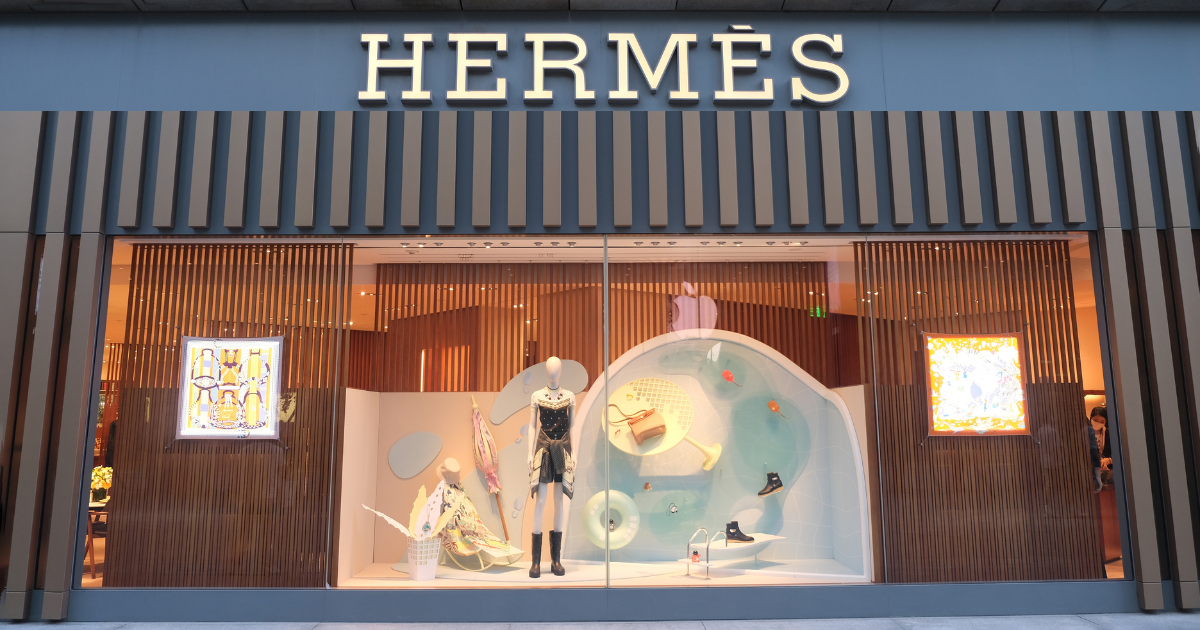
istock.com/Robert Way
Hermès Overtakes Its Luxury Rivals as Retail Sector Slows
October 31, 2023
Achieving sales of €3.37 billion in the third quarter, a 15.6% increase, Hermès outperformed analysts’ forecasts. Despite the general pessimism about the luxury sector, attributed to a pullback in spending on premium goods amid global financial uncertainty, the French fashion label continues to thrive. According to Victoria Scholar, Interactive Investor’s head of investment, Hermès’ ability to weather the economic storm is largely due to its successful price increases that have not dampened customer demand.
Contrary to the conventional economic principle that a rise in price leads to a dip in demand, Scholar noted that the luxury market seems to function differently. The allure of a Hermès bag, some priced above $10,000 (€9,450), appears to enhance with price hikes.
Conversely, the broader economic challenges have impacted other luxury companies. Kering Group, owner of esteemed brands such as Gucci, Yves Saint Laurent (YSL), and Balenciaga, reported a steeper-than-expected 9% drop in sales to €4.46 billion.
Gucci, responsible for over half of Kering’s annual sales, endured a 7% sales downturn. The brand is currently undergoing a makeover under new creative leadership following two years of disappointing performance.
Smaller brands under the Kering umbrella, despite showcasing robust growth in previous quarters, also experienced a contraction between July and August. Sales at YSL and Bottega Veneta fell by 12% and 7%, respectively.
In the recent past, Kering Group has experienced competition pressure from French rivals such as Dior and Louis Vuitton, brands under LVMH, which have managed to recover remarkably post-pandemic. Despite being the world’s largest luxury group and one of the most valuable companies in Europe, LVMH witnessed a 9% increase in Q3 sales for its fashion and leather goods sector, falling slightly short of the anticipated 10% growth.
Economic constraints in Europe and the U.S. are driving consumers to reduce their spending on luxury goods. Meanwhile, the situation in China, a vital market for luxury brands, remains challenging due to unprecedented youth unemployment rates and an ongoing real estate crisis.
Recent News
Media Giants Depend on Sports As Content Shortages Rise
As Hollywood emerges from last year’s strikes, major media companies are turning to live sports to attract audiences and advertisers. This trend was evident during this year’s Upfront presentations, where media giants showcased their upcoming content and advertising opportunities.
New Trader Joe’s Opens in SF After 10 Years
San Francisco’s Hayes Valley neighborhood welcomed a highly anticipated new addition on May 17, 2024, with the grand opening of a Trader Joe’s at 555 Fulton St., on the corner of Laguna Street. This event marks the end of a decade-long wait for residents who have been eagerly looking forward to a new grocery store in their area.
China’s Property Market Boost: Stocks Surge, Copper Hits Highs
The Chinese government unveiled a comprehensive support package that has sent ripples through financial markets. This initiative includes a slew of measures aimed at stimulating housing demand and addressing the excess inventory burdening developers. The immediate impact was a significant rally in Chinese stocks and a surge in commodity prices, notably copper, which hit record highs.
Mercedes-Benz Workers in Alabama Reject Union
In a pivotal moment for autoworkers in the southern United States, employees at a Mercedes-Benz plant in Alabama have voted against joining the United Auto Workers (UAW) union. The outcome, with 56% of workers voting against unionization and 44% in favor, comes as a significant setback for the UAW’s efforts to expand its influence in the region.

